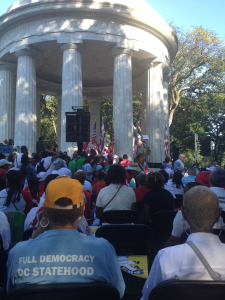NCL is pleased that the long overdue Silica Rule has been released – National Consumers League
August 26, 2013
Contact: Ben Klein, NCL Communications, (202) 835-3323, benk@nclnet.org
Washington, DC — The National Consumers League cheers the release of the long overdue rule that will shield workers from excessive exposure to silica dust. The rule, released by the U.S. Occupational Safety and Health Administration (OSHA), lowers the legal limit of silica dust that workers are permitted to breath to 50 micrograms per cubic meter of air.
There are an estimated 2.2 million American workers exposed to silica dust every year; about 1.8 million of those work in the construction industry. Many of these workers are exposed to silica dust when cutting, drilling, or grinding material. Exposure can lead to silicosis, as well as increased susceptibility to lung cancer, kidney disease, and autoimmune disorders. This new regulation is estimated to save 700 lives and prevent 1,600 new cases of silicosis annually, according to OSHA.
“The release of this critical worker safety rule is long overdue,” said Sally Greenberg, NCL Executive Director. “For over a decade limits on worker exposure to silica dust have been stymied by industry opposition and stalled by needless bureaucracy. During that time, thousands of workers have lost their lives or suffered grave illness. We are pleased that OSHA has finally taken necessary steps to address safety for millions of construction workers. There was no excuse for this rule to be held up. NCL, the nation’s oldest consumer and worker advocacy group, urges the Obama administration to release other common sense rules passed by Congress or developed by federal agencies to improve worker safety.”
###
About the National Consumers League
The National Consumers League, founded in 1899, is America’s pioneer consumer organization. Its mission is to protect and promote social and economic justice for consumers and workers in the United States and abroad. For more information, visit www.nclnet.org.

 By Sally Greenberg, NCL Executive Director
By Sally Greenberg, NCL Executive Director














